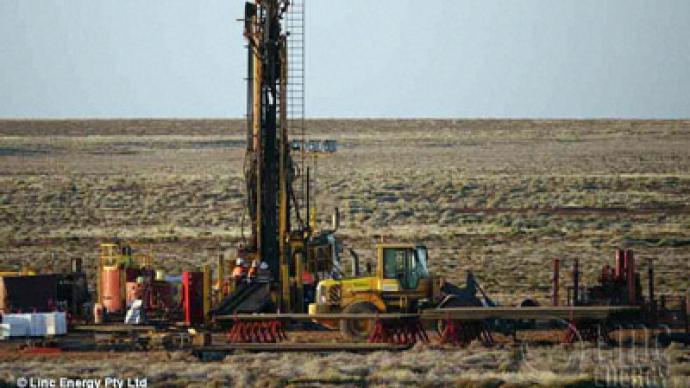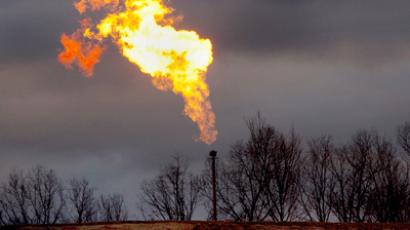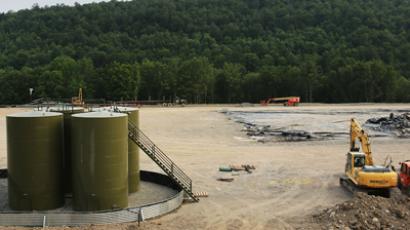Australia to rival Saudi Arabia in oil reserves?

An Australian company claims it has found an untapped shale oil field with estimated reserves that could potentially put the country next to remarkably oil-rich Saudi Arabia. Still, extracting the discovered treasure poses a huge technical challenge.
Brisbane-based company Linc Energy has presented two estimates by respected independent consultants claiming that drilling and seismic exploration they do in South Australia has brought the prize they have been dreaming of for years – a potentially huge untapped shale oil deposit.DeGolyer and MacNaughton petroleum industry consulting firm evaluated potential shale oil reserves at Arckaringa Basin around the town of Coober Pedy at 103 billion barrels of oil equivalent (BOE), while Gustavson Associates consulting firm put it as high as 233 billion BOE. That is practically comparable to the proven 263 billion barrel reserves of oil heavyweight Saudi Arabia. The risked mean estimate given by DeGolyer and MacNaughton put it at a much more moderate 3.5 billion BOE. "We didn't expect it to go this nuts," Linc Energy chief executive Peter Bond told Reuters.With the current international market oil prices this shale oil could be worth billions of dollars by the most conservative estimate."How much is recoverable is always the question. Is it 3 billion barrels or is it 203 billion barrels? Even if it's 3 or 4 billion barrels… that's a massive find in this part of the world. No matter how you cut it, it's still a massive outcome," Bond said.In any case, Arckaringa Basin might contain more oil than all of the known Australian oilfields combined, finally making the country fully energy independent. Though Linc Energy’s shares jumped up immediately after Australian media broadcast the news, using “trillions of dollars” and other superlative degree terms, the company still needs hundreds of millions of dollars just to finish exploration, let alone extracting the black gold commercially. The most important issue now is how much of the discovered oil is recoverable.Linc Energy, which has already spent about AU$130 million (US$136 million) drilling in the Arckaringa Basin, has hired Barclays Bank to search for a partner to invest AU$150-$300 million into the next stage of the project.Shale oil of the Arckaringa Basin is hidden beneath serious 1-2km of shale rock, but there is still some good news. Usually, oil is extracted from shale by traditional mining, when shale is crushed and organic matter in it is heated to create liquid oil. At Arckaringa basin engineers found oil in droplets, which means it is already liquid and can be extracted by the modern fracking process.Unlike in the US, where fracking is widespread and has a tendency to become cheaper, in Australia the costs could be many times higher. If drilling a shale well in America has an average cost of around US$10 million, in Australia it might well reach $15 million per well.The fracking process by itself has always been raising concerns of environmentalists in the US, where it is widely used to extract shale gas, and also in Europe, because chemicals used in this process seriously pollute groundwater. But for Arckaringa Basin, situated in a practically unpopulated area of the land Down Under, fracking shale oil may pose fewer risks.














